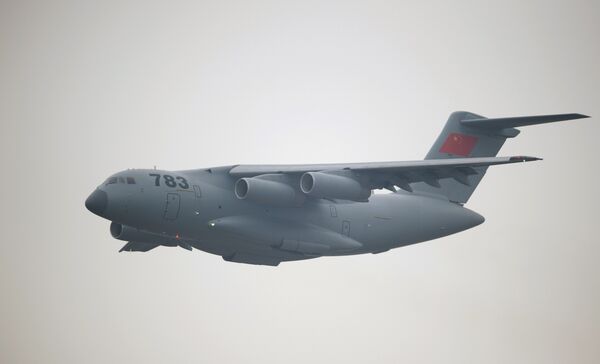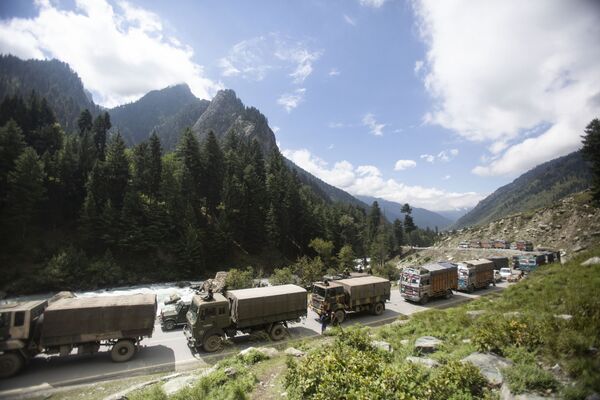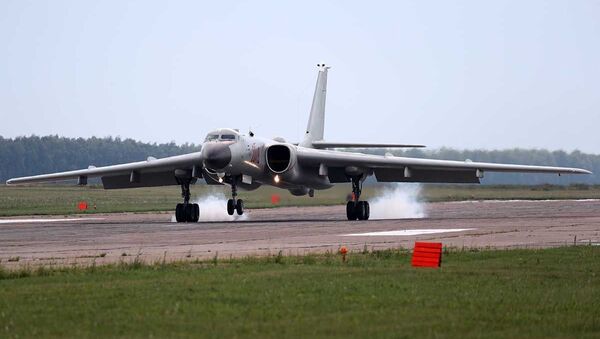As tensions on the China-India border near Pangong Lake reach new highs, there is new evidence Beijing is moving more military forces into the region and preparing others in case they are needed, meaning they may be preparing for a larger conflict than the violent skirmishes seen in recent months.
On Tuesday, the People’s Liberation Army (PLA) Central Theater Command Air Force revealed that H-6 bombers and Y-20 transport aircraft have been deployed to the Tibetan Plateau for training missions, the Global Times reported.
The outlet noted that China Central Television (CCTV) had reported the previous week on round-the-clock exercises by the PLA Tibet Military Command, and that a unit of HJ-10 anti-tank missile carriers had been shipped to the Gobi Desert in northwestern China, along with an air defense brigade.

CCTV also reported on Wednesday that a special operations brigade from the Tibet Military Area Command and an army aviation brigade had organized a parachute training exercise “in an unfamiliar area which is over 4,000 meters above sea level recently,” the South China Morning Post (SCMP) reported. According to the outlet, more than 300 troops took part, and the training was expected to eventually include more than 1,000 troops in order to “lay a good foundation” for such operations.
According to the report, the training aimed to “improve the three-dimensional assault capabilities” of the military on the high Tibetan plateau and enhance the “overall combat capabilities of the troops stationed in Tibet.”
Hong Kong-based military expert Song Zhongping told the SCMP that Beijing moving elite units from other parts of the country is a sign it is preparing for a larger conflict than the border skirmishes seen thus far.

“While airdropping has been part of regular training of the Chinese special forces, the troops still need to get used to the high altitude, as the thinner air and stronger radiation will pose new challenges for soldiers’ physical condition, especially those trained in low-altitude areas,” Song said, noting “the high-altitude equipment also needs to be tested and calibrated. The troops also need to become familiar with this equipment and fight alongside other units.”
When a renewed dispute broke out between India and China in May over the Line of Actual Control between Indian-controlled parts of Kashmir and China’s Tibet Autonomous Region, both sides began positioning forces close to the high-altitude conflict zone, and despite several attempts at negotiating an end to the situation, tensions remain high. Several hand-to-hand fights have broken out between Indian and Chinese troops, but September 7 saw the first shots fired in the dispute in more than 40 years.
The dispute is over different interpretations of a poorly demarcated border established between India and China that dates to the 19th century, when India was ruled by the United Kingdom as a crown colony.


